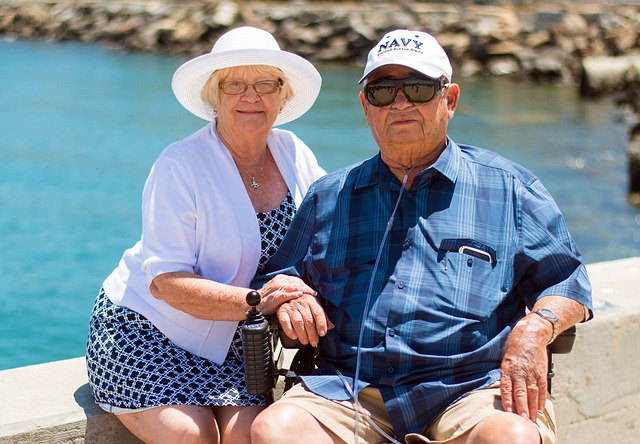In Oregon, grandparents seeking access or custody must follow a structured legal process that begins with filing a petition and culminates in a court decision based on the child's best interests. This process includes evaluations of relationships, well-being, and family dynamics, leading to potential awards of visitation, joint custody, or full custody. Understanding this process, along with seeking professional guidance from an attorney specialized in family law, is crucial for navigating grandparent rights in Oregon successfully.
In Oregon, recognizing and upholding grandparent rights is a critical aspect of family law. Understanding the legal process for grandparents involves navigating complex procedures to ensure meaningful access to grandchildren. This comprehensive guide delves into the intricacies of the Oregon court process, offering insights on grandparent rights, initiating legal action, court proceedings, building a compelling case, overcoming challenges, and enforcing post-court decisions. By exploring these key areas, this article equips readers with knowledge to navigate the legal landscape effectively.
- Grandparent Rights: An Overview in Oregon
- Initiating the Legal Process: Who Can File and When
- Court Proceedings: What to Expect Step-by-Step
- Building a Strong Case for Grandparent Access
- Common Challenges and How to Overcome Them
- Post-Court: Enforcing and Maintaining Grandparent Rights
Grandparent Rights: An Overview in Oregon

In Oregon, grandparent rights are recognized and protected by law, providing a structured path for grandparents to maintain a significant relationship with their grandchildren. The court process for grandparents involves navigating a series of legal steps designed to ensure the best interests of both the child and the parents are considered. Understanding this process is crucial for grandparents seeking access or custody.
Oregon’s court process for grandparent rights typically begins with filing a petition in the appropriate court, outlining the specific grounds for intervention. The court will then evaluate the case, considering factors such as the quality of the grandparent-grandchild relationship, the child’s well-being, and any potential impact on the family dynamics. If the court grants the petition, it may order visitation rights, joint custody, or in some cases, full legal custody, depending on the unique circumstances presented.
Initiating the Legal Process: Who Can File and When

In Oregon, initiating the legal process to establish or protect grandparent rights involves specific steps and requirements. Grandparents or other relatives seeking custody or visitation rights must navigate the state’s court system, which can be complex. The first step is to consult with an attorney experienced in family law to understand their specific circumstances and potential legal options. Filing a petition with the appropriate Oregon court is typically the next step, outlining the reasons for seeking grandparent rights and any relevant facts.
The timing of filing is crucial; there are no strict time limits for initiating the process, but establishing prompt action demonstrates urgency and can be beneficial in court proceedings. It’s essential to remember that every situation is unique, and Oregon’s court process prioritizes the best interests of the child. Therefore, gathering comprehensive documentation supporting the request for grandparent rights is vital from the outset.
Court Proceedings: What to Expect Step-by-Step

When facing a legal battle regarding grandparent rights in Oregon, understanding the court process is pivotal. Here’s what to expect step-by-step: Firstly, file a petition with the appropriate Oregon court detailing your request for visitation or custody. This should include relevant documentation and any supporting evidence. Once filed, the court will schedule a hearing date, providing notice to all parties involved. During the hearing, both sides present their cases; a judge will then make a decision based on the best interests of the child.
If the outcome is not satisfactory, appeals can be made within the designated timeframe. It’s crucial to remain proactive and well-prepared throughout, ensuring all legal requirements are met. Navigating the Oregon court process demands clarity and persistence; seeking professional legal counsel is highly recommended for a successful outcome regarding grandparent rights.
Building a Strong Case for Grandparent Access

When fighting for grandparent access in Oregon, building a strong case is paramount. It requires gathering substantial evidence demonstrating your capability and willingness to provide a stable, loving environment for the child. This can include medical and financial records, witness statements from reliable sources, and any history of positive interactions with the grandchild. Demonstrating a consistent pattern of responsible behavior and a genuine interest in maintaining a relationship with the child is crucial.
Understanding the Oregon court process is essential. The state’s legal framework aims to protect the best interests of the child while also recognizing grandparent rights. Navigating this process requires clarity on the relevant laws, such as those outlined in Oregon Revised Statutes (ORS) Chapter 109, which pertains to family law and grandparent visitation. Legal counsel experienced in Oregon court procedures can guide you through each step, ensuring your case is presented effectively and in compliance with the law.
Common Challenges and How to Overcome Them

Navigating the court process to establish or protect grandparent rights in Oregon can be challenging, especially for those unfamiliar with the legal system. One common hurdle is understanding the specific laws and procedures related to grandparent visitation and custody. It’s crucial to recognize that grandparent rights are distinct from parental rights, and the court process may vary depending on the circumstances. Many families find it beneficial to consult an attorney specializing in family law to guide them through this complex landscape. Legal professionals can explain the options available, help prepare necessary documents, and represent interests in court, ensuring a stronger chance of a favorable outcome.
Another challenge arises from emotional complexities involved in such cases. Grandparents often have deep-rooted connections with their grandchildren, which can make the legal process even more delicate. Maintaining open communication and respecting all parties’ feelings is essential. Additionally, staying organized and providing clear, concise documentation to the court can significantly impact the outcome. By addressing these challenges head-on and seeking appropriate support, grandparents in Oregon can navigate the court process with confidence, ultimately advocating for their rightful place in their grandchild’s life.
Post-Court: Enforcing and Maintaining Grandparent Rights

After a court has made a decision regarding grandparent rights, the next step is to understand how to enforce and maintain those rights. In Oregon, grandparents seeking access to their grandchildren often need to navigate a post-court process to ensure their visitation or custody arrangements are upheld. This may involve regular communication with the child’s parents and any legal representatives to confirm that grandparent time is being honored as ordered by the court.
Grandparents should be familiar with their rights and responsibilities under Oregon law, including any necessary documentation and proof of compliance. They can also benefit from seeking guidance from a legal professional experienced in family law to help them understand how to maintain a consistent presence in their grandchild’s life while respecting the custodial parent’s role. Effective communication, patience, and persistence are key aspects of successfully navigating this phase.
